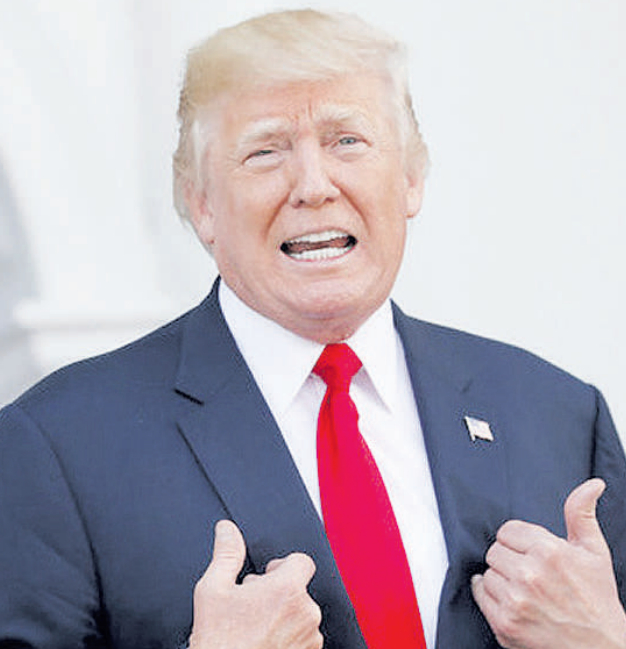
THE US is open to a trade deal with Kenya, the Embassy in Nairobi has confirmed, even as it emerges that President Donald Trump's administration could throw out talks that were underway during former President Joe Biden’s term.
This comes as Kenya continues to
knock doors in Washington to try and secure preferential trade terms before the
expiry of the African Growth and Opportunity Act (AGOA), which lapses on September 30, amid Trump
tariffs which have hit exports to the US market.
Kenya has been among the biggest beneficiaries of AGOA, which it has used to access the US market duty free since the year 2000.
The push to have a bilateral trade deal started during Tump and former Kenya’s President Uhuru Kenyatta’s tenures, where talks commenced in July 2020.
After the US elections in November 2020, President Joe Bidens’s administration took time to review part of the pact before initiating a fresh round of talks under what became the Strategic Trade and Investment Partnership (STIP).
Kenya then went into an election in August 2022, which saw President William Ruto ascend to power, with his administration taking over the negotiations as the two administrations agreed to seek the strategic partnership.
While the two countries pushed to have a pact before Biden’s exit, negotiations never materialised on time leaving STIP in the hands of Trump’s administration which came into power in January this year.
A deal had been anticipated during the ‘lame duck’ period, that is the period between after elections (November) and handing over of power to the elected President, which is January 20 when Trump was inaugurated.
The US Embassy in
Nairobi has however confirmed that “conversations are taking place” between the Kenyan government and US government, for a possible renewal of trade talks between
the two countries, albeit under new guidelines.
“Those conversations are definitely taking place but STIP might not be the acronym that it is called. It might be called something different, but I think there are intentions to have those discussions about lifting barriers to trade between the United States and Kenya,” Carla Benini, acting Deputy Chief of Mission, U.S Embassy’s, Nairobi, told the Star during an interview.
This gives hope to Kenya’s push for preferential export terms with the US, which was recently hit by a 10 per cent tariff, as Trump tariffs took the global trade by storm in what White House said was a move to protect American industries and create jobs.
Last week, Kenya’s Investment, Trade and Industry Ministry said the government is intensifying its lobbying efforts to secure the renewal of AGOA, following the recent imposition of a 10 per cent tariff on textile exports to the United States.
The tariff, it said, threatens to undermine years of export gains achieved under the AGOA framework and has raised concern among investors in Export Processing Zones (EPZ).
CS Lee Kinyanjui gave the assurance during a consultative roundtable meeting with textile and apparel exporters under the EPZ programme held at a Nairobi Hotel.
The event brought together industry players, policymakers and sector agencies to deliberate on trade barriers, investment trends and emerging policy responses.
“We are
doing everything possible to ensure Kenya remains a globally competitive
investment destination,” said the CS adding that a recent visit to Washington ignited
a strategic conversation and focused on ensuring that AGOA continues to serve
as a driver of industrialisation and job creation.
During a recent visit to Washington DC led by Prime Cabinet Secretary Musalia Mudavadi, Kenya initiated direct engagements with US senators and trade authorities.
Details of the ongoing negotiations however remain confidential due to a non-disclosure agreement, but a formal communication is expected to be made within the next 30 days.
In 2024, Kenya exported goods worth Sh60.57 billion to the US market, representing a 19 per cent increase from the previous year.
Kenya emerged as the top exporter of textile and apparel products to the US under AGOA in 2024. The country also maintained a leading position within the East African Community (EAC).
Kinyanjui noted that the introduction of the 10 per cent tariff by the US poses new challenges warning that the tariff could erode Kenya’s price competitiveness, especially among cost-sensitive buyers.
He called for
urgent mitigation measures even as the government continues exploring multiple
options.
Some of these options include applying for tariff waivers, pursuing new trade arrangements, diversifying export markets and bolstering local industrial capacity.





.jpg&w=3840&q=100)





